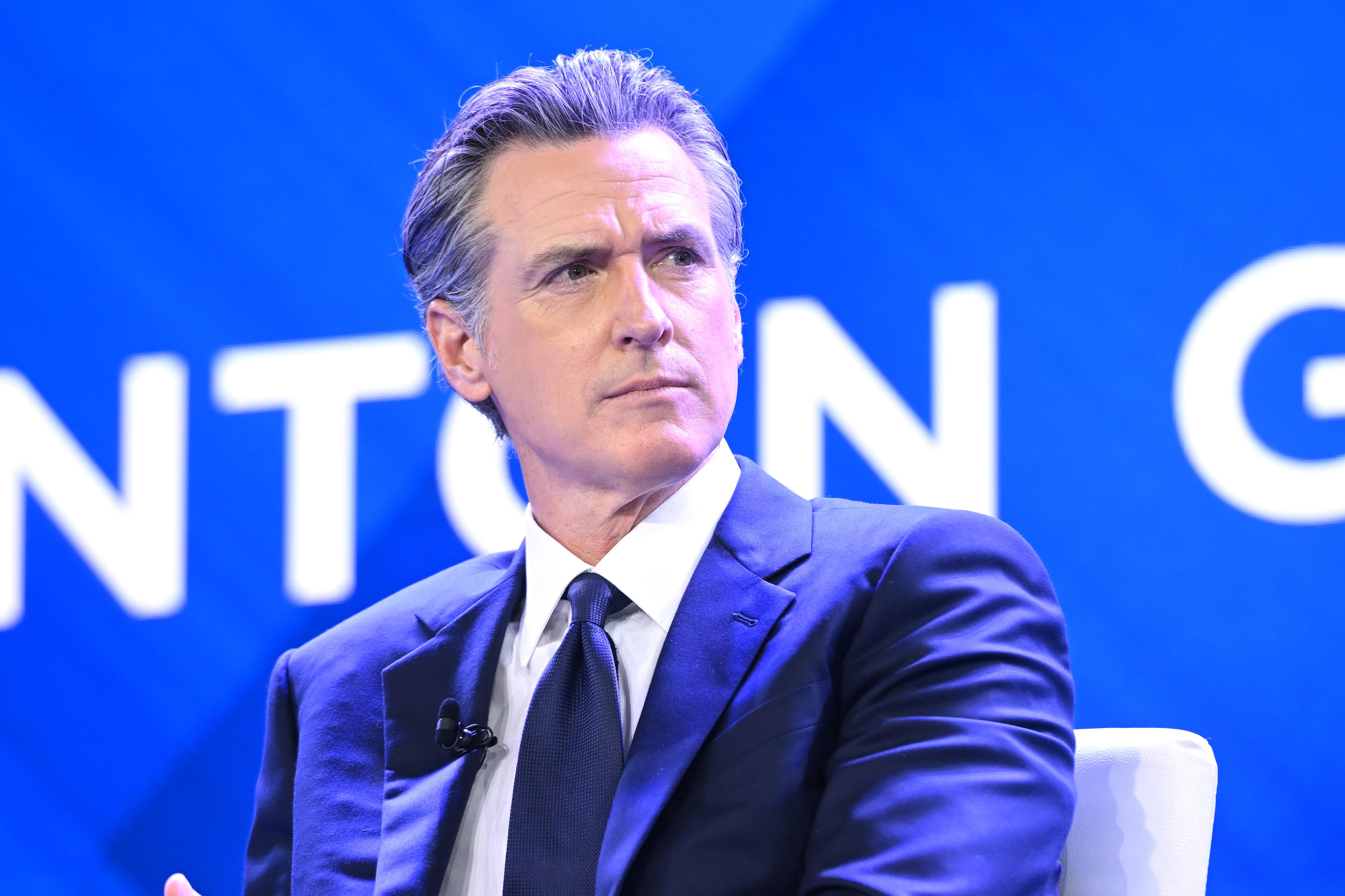After gas prices spiked starting in August and peaked in late September, oil companies profited more than $33 billion in just three months, according to Gov. Gavin Newsom, who suggested the companies could be doing more to help ease the pain for drivers.
“Big Oil hiked prices at the pump and took in huge profits,” Mr. Newsom said in a press release Nov. 8. “Instead of passing down savings to consumers, they sent billions to shareholders and Wall Street.”
With gas prices rising from early July, continuing to climb through the summer, and peaking at an average of $6.08 per gallon across the state on Sept. 27, profits jumped industry-wide, according to the press release.
During the third quarter, Exxon benefited the most with $9.1 billion, Chevron’s $6.5 billion placed second, just edging Shell’s $6.3 billion, with five other companies bringing in between $786 million and $3.3 billion in profits each, according to state regulators.
The governor said in September that new authorities granted under a measure signed in March called the Gas Price Gouging Law—designed to regulate petroleum markets, set margin limits, and penalize companies that break policy guidelines—will protect consumers from market manipulations that benefit oil companies.
“We will no longer be left in the dark as private traders and corporate interests make record profits while Californians foot the bill,” Mr. Newsom said in a Sept. 22 press release. “We’ll continue using our new tools to hold Big Oil accountable and shine a light on these operations that have, until now, functioned in the shadows.”

California Governor Gavin Newsom speaks in the rotunda of the California State Capitol in Sacramento on March 28, 2023. (Courtesy of the Office of Governor Gavin Newsom)
Following an update from state regulators on the issue in late September, the governor suggested poor refinery maintenance was responsible for some of the spikes over the summer.
“We can see how refiners that go offline for maintenance without adequately preparing for it limit supply and drive up prices,” Mr. Newsom said. “We can [also] see the unusual spot market transactions that create unexplained spikes in prices that Californians pay at the pump.”
One of those “unusual” transactions on Sept. 15, state regulators said, caused gas prices to rise nearly 50 cents per gallon overnight, according to a Sept. 22 letter from the head of a newly created division overseeing the monitoring of petroleum markets in the state.
“As the market is structured, the spot market price impacts a large volume of sales statewide at the bulk, rack, and retail levels,” Tai Milder, director of the state’s petroleum oversight division, wrote Mr. Newsom. “It is not an exaggeration to say that one trade likely cost California drivers many millions of dollars at the pump.”
While global crude prices also increased during the same period, the director wrote that wholesale costs “do not fully explain the increase in everyday prices that Californians pay at the pump or the increasing differential from national average prices.”
At the time, Golden State drivers paid approximately $1.92 more per gallon than the national average due to a combination of higher taxes, the state’s so-called “summer blend” regulations, and profit taking.
Getting to the root of price increases is difficult, said regulators, who advised the governor that while more data is needed to better understand the issue, such was likely due to instances where refineries raised prices in the state.
“Prices have spiked in the last week in a manner that does not appear to be completely explained even by these supply-and-demand fundamentals,” Mr. Milder wrote.
The governor and the state’s attorney general, Rob Bonta, filed a lawsuit in September alleging 50 years of market manipulation and deception by the industry, with Mr. Newsom repeatedly targeting “Big Oil” with subsequent press releases and social media posts.
“They’re ripping you off,” the governor’s office posted Oct. 26 on X, formerly known as Twitter.
The issue has been prioritized because the high price of fuel in the state is impacting Californians, particularly low-income earners, according to officials.
“Record high retail gas prices—and record-breaking profits for Big Oil—hurt those who can least afford it most of all,” Mr. Bonta said in a March press release after the oil gouging law was signed. “And while oil companies have been lining their pockets, many Californians are struggling to make ends meet.”
The notion that companies are targeting the Golden State was rejected by critics.
“I don’t think oil companies are any greedier in California than they are in Texas,” Marc Joffe, policy analyst for the Cato Institute—a public advocacy think tank based in Washington, D.C.—told The Epoch Times Nov. 10. “There must be something wrong with California because in all the other states the price is lower, and in Texas it’s way lower.”
Those looking to solve the gas price problem should start with the state’s regulations and high gas tax and fee structure as contributing to the problem, he said.
“The greed argument is scapegoating,” Mr. Joffe said. “It’s a mixture of taxes and restrictive policies that we have in California.”
Other critics of the new law agreed that state taxes and fees are part of the problem, suggesting that penalties imposed on companies will ultimately be passed on to consumers.
“Price caps, taxes, and tax-like penalties do not increase supply or reduce prices, but instead can have the opposite effect – less investment, less gasoline supply, and ultimately higher costs for Californians,” Catherine Reheis-Boyd, president and CEO of the Western States Petroleum Association—a nonprofit group advocating for the industry—said in a press release earlier this year. “It’s time for serious discussion about what it will take to ensure an affordable, reliable and safe fuel supply for the years ahead.”
California’s taxes and fees for gas are among the highest in the nation—adding around $1.42 per gallon to the price—including federal and state excise taxes, sales tax, environmental fees, and underground tank storage, according to the California Energy Commission.












